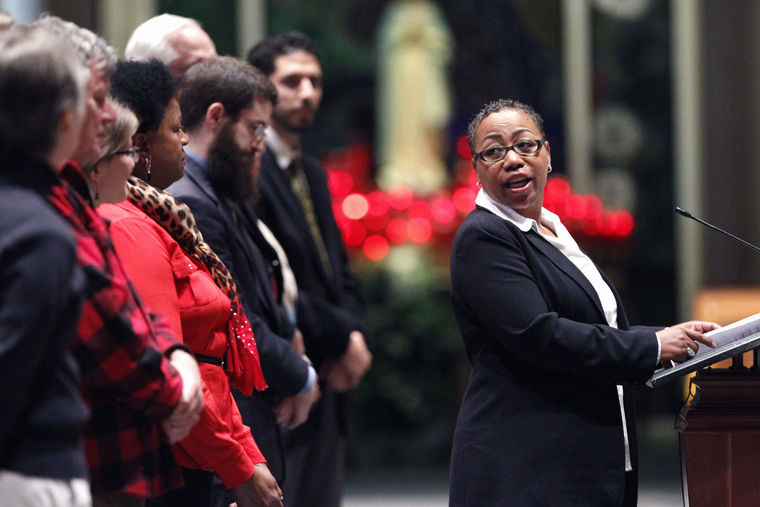Election of Crime at Drugs as New Focus
Content for this post was taken from the Daily Progress coverage of our 9th Annual Assembly.
For years, Loretta Martin said, her sister has battled drug and alcohol abuse without being able to find adequate rehabilitation programs close to her family. She has been to programs in Richmond and Roanoke, but is “incapable of finding help on her own,” Martin said. She has been turned away from a psychiatric ward and can’t find housing.
“If there was some program for women with alcohol and drug problems in the local areas, families could stay connected and then the healing could begin,” Martin said. “I pray that she is okay and that God will continue to watch after her. Am I my sister’s keeper? Yes, I am. And I and my family will fight to find the care that she needs.
Martin’s story led to the Interfaith Movement Promoting Action by Congregating Together, IMPACT, choosing drugs and crime as its next project.
The nonprofit group, comprised of 27 Christian, Jewish, Muslim, and Unitarian Universalist congregations across Charlottesville and Albemarle County, met Monday evening to direct its focus on drugs and crime, housing or education.
Along with Martin, three other members told their stories and leaders encouraged voters to think about their own experiences to make a decision.
Mallika Rodriguez, a single mother, spoke about her struggle to find affordable, convenient and high-quality childcare. She said she had a hard time finding childcare that was able to work with her job schedule, which could change weekly.
“Sometimes when I’ve found a child care center that offered this flexible coverage, I found myself disappointed by the quality of the actual programs, the facilities or even the staff,” Rodriguez said.
Statistics provided from Child Care Aware show that, in 2011, Virginians typically paid between $8,300 and $10,650 a year for full-time care for infants and toddlers. In comparison, the 2012 in-state tuition at the University of Virginia was just more than $12,000.
Stephanie and Dominique Eley told their story of homelessness, stemming from the inability for both of them to keep a job expecting their child. They went through several houses, but never had to spend a night on the streets due to help they received from churches. They are now working with Habitat for Humanity to build their own home.
According to Habitat for Humanity, about 4,000 families in Charlottesville spend more than half of their income on housing.
Of the 254 votes cast Monday, crime and drugs received 116, housing received 80 and education received the remaining 58. Members from 24 congregations voted.
The night also featured a progress report on two earlier initiatives: young adult unemployment and youth mental health.
Through working with IMPACT, UVa Health Systems has applied for a grant that would allow it to take 50 unemployed or underemployed young adults, aged 18-25, for skills training, mentoring and education to help them get employment in the healthcare field, said Patricia Cluff, associate vice president for strategic relations and marketing for UVa Health Systems.
After completion of the program, candidates will then be able to apply for entry level positions at UVa Health Systems.
As for youth mental health, both Fluvanna and Greene counties have been able to install telepsychiatry equipment to help children get psychiatric services, said Region Ten Executive Director Robert Johnson.
